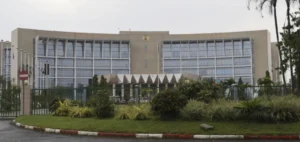The U.S. government has approved U.S. giant ConocoPhillips’ Willow project, a major oil project in northern Alaska. This decision was announced by the Department of the Interior, in charge of federal lands in the United States, despite pressure from environmental groups. The project, which has been reduced to three drilling areas from the five originally requested by the company, is located in an area known as the National Petroleum Reserve in northwest Alaska. This is U.S. state-owned land, while President Joe Biden, a Democrat, came to office promising not to allow new oil and gas drilling on federal lands.
U.S. government announces additional environmental protections
The U.S. government has also announced that it will permanently ban drilling in a large area of the Arctic Ocean bordering the national oil reserve. He also said he is working on additional protections for a large area of the national oil reserve. This decision was made in order to give pledges to environmentalists while approving the oil project. Advocates of the Willow project see it as a source of jobs and a contribution to U.S. energy independence. However, environmental associations denounce a catastrophe for the climate.
Environmental associations express their opposition
Environmental groups have launched a massive campaign to fight the Willow project. They denounce the carbon pollution it will release into the air and its devastating effects on people, wildlife and the climate. An online petition collected more than 3.2 million signatures, and a wave of videos opposing the project had notably broken out on the social network TikTok. The environmental organization Sierra Club said the Willow project would be one of the largest oil and gas operations on federal public lands in the country.
For several years, the Willow project has been at the heart of a fierce battle. This Alaska oil drilling project was originally approved by the Trump administration, but was temporarily halted in 2021 by a judge. The latter had requested a new government review of the environmental impacts of the project.
An alternative reducing the project
In early February, the Bureau of Land Management released its environmental analysis of the Willow project. In the latter, the Bureau proposed a “preferred alternative”. This alternative reduced the original five-site drilling project to only three sites, with approximately 219 wells. According to the Bureau’s estimates, this would allow the production of 576 million barrels of oil over a period of about 30 years. However, this alternative would result in the emission of 9.2 million tons of CO2 per year, or 0.1% of U.S. greenhouse gas emissions in 2019.
The Willow project in figures
The Willow project reduced to three drilling sites instead of five is expected to produce about 576 million barrels of oil over about 30 years, according to Bureau of Land Management estimates. This would result in the emission of 9.2 million tons of CO2 per year, or 0.1% of U.S. greenhouse gas emissions in 2019. Joe Biden has pledged to reduce U.S. greenhouse gas emissions by 50 to 52 percent by 2030, compared to 2005, to enable the world’s largest economy to achieve carbon neutrality by 2050.
Joe Biden and the goals of the Paris Climate Agreement
The stakes for the Willow project are high for the Biden administration, which has set a goal of reducing U.S. greenhouse gas emissions by 50 to 52 percent by 2030, compared to 2005. This ambitious goal is part of the Paris Climate Agreement, which aims to limit global temperature rise to 1.5°C by the end of the century. Reducing greenhouse gas emissions is therefore a crucial issue for the world’s largest economy, which wants to achieve carbon neutrality by 2050.
Faced with this challenge, the Biden administration will have to make a difficult decision about the Willow project, weighing its potential economic benefits against its environmental consequences.






















